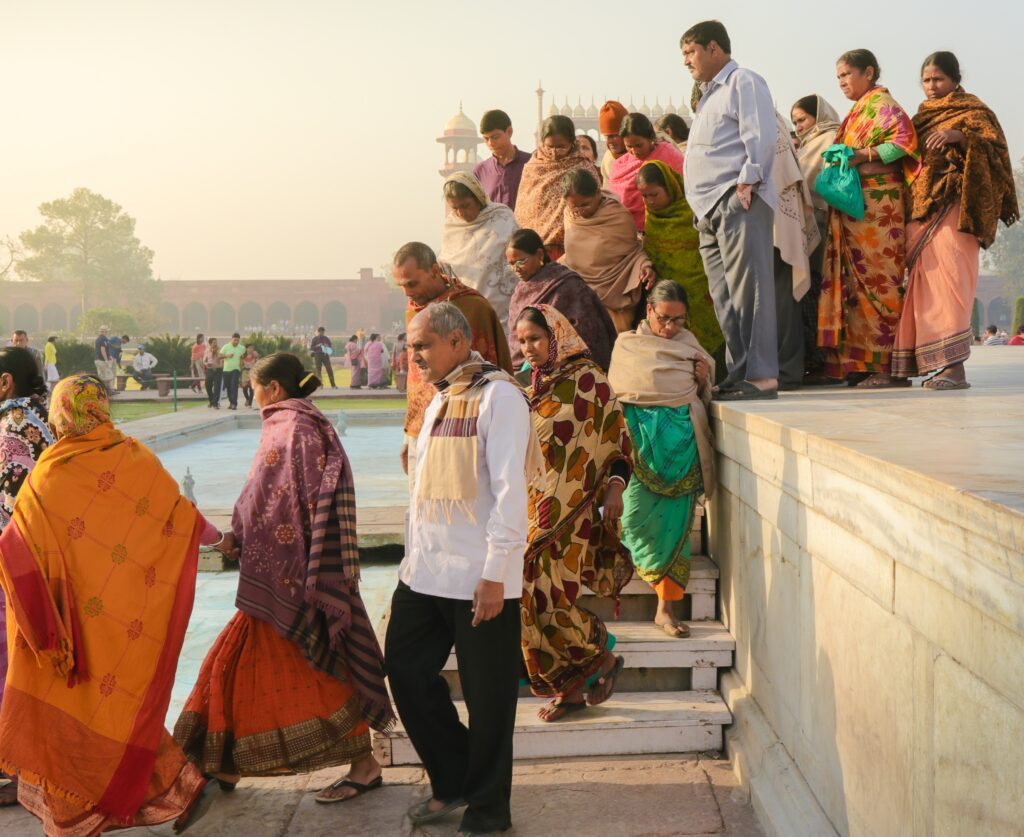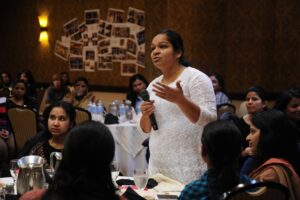Introduction
Welcome to “Quiet Bliss: A Guide to Introvert-Friendly Cultures and Societies”. This article is for those who believe in the potential to shift from introversion to extroversion. Yes, you heard it right! The journey from introvert to extrovert isn’t just a fantasy; it’s an unconventional yet increasingly popular process. This guide will take you through various cultures and societies where introverts thrive, offering insights and inspiration. Whether you’re firmly an introvert or curious about the introvert to extrovert transition, this journey promises to be enlightening, showing how different societies embrace quietness and how you might find your place in them. 🌍✨

Defining Introvert-Friendly Societies
Defining what makes a society introvert-friendly is essential for understanding how different cultures cater to those who thrive in quieter environments. Introversion, often misunderstood, is not about shyness but about how individuals recharge and process information. In introvert-friendly societies, there’s a distinct emphasis on environments that respect individual space and quieter forms of socialization. This doesn’t mean these societies are anti-social; rather, they foster social interactions that are more reflective and less overwhelming.
An introvert-friendly society often features public spaces designed for calm and contemplation. Think libraries with cozy reading nooks, parks with secluded benches, and cafes where solitude is as much on the menu as the coffee. The architectural design in these societies tends to favor smaller, more intimate settings over large, bustling open areas.
In the workplace, these cultures might emphasize focused, independent work rather than constant teamwork and collaboration. This allows introverts to excel in their roles without the pressure of constant social interaction. Educational systems in such societies also tend to recognize and support different learning styles, acknowledging that group activities aren’t always the most effective way for everyone to learn.
The key to these societies is not the absence of social interaction but the quality of it. Social events, when they occur, are often more structured and less chaotic, allowing introverts to engage in deeper, more meaningful conversations.
In summary, introvert-friendly societies understand and respect the introvert’s need for solitude and quiet reflection, while still providing opportunities for meaningful social interaction. These societies are not just about creating quiet spaces but about fostering a culture that recognizes and values the introvert’s way of life.
Take our advanced introvert test to see how well you would fit into these societies and begin exploring which aspects resonate most with your personal style.

Japan: A Case Study of Introvert-Friendly Practices
Japan serves as a fascinating case study for introvert-friendly practices, embodying a culture where quietude is not just accepted but celebrated. In Japanese society, there’s an inherent respect for personal space and a preference for non-verbal communication, making it an ideal setting for introverts. This cultural inclination towards introspection and quiet contemplation is evident in various aspects of Japanese life.
One of the most striking features is the concept of ‘Ikigai’, a term that refers to one’s reason for being. It encourages finding joy and fulfillment in peaceful pursuits, aligning well with the introverted mindset. Japanese architecture, too, reflects this ethos, with spaces like traditional tea houses designed to provide a serene, introspective environment.
In social settings, the Japanese often favor subtlety and indirect communication. This less confrontational style of interaction can be more comfortable for introverts, who may find direct and boisterous conversations overwhelming. Moreover, Japan’s rich literary and artistic traditions, with genres like Haiku and practices like ink wash painting, emphasize minimalism and introspection, appealing to the introvert’s appreciation for depth and simplicity.
Even in bustling cities like Tokyo, there are pockets of tranquility such as serene gardens and quiet temples, offering a respite from the urban chaos. The culture’s emphasis on mindfulness and the aesthetic principle of ‘Wabi-sabi’, finding beauty in imperfection and transience, resonates deeply with those who seek meaning in quietness.
Understanding the nuances of such a culture not only helps introverts find societies where they can thrive but also offers insights into how different societal norms can shape personal interactions and lifestyles.
Join our intro to extro community to discuss more about Japan’s introvert-friendly practices and how they can be incorporated into your daily life, or explore similar cultures that value the quiet strength of introversion.

Nordic Silence: How Scandinavian Cultures Embrace Quiet
The Nordic countries – Denmark, Sweden, Norway, Finland, and Iceland – offer a unique perspective on how societies can embrace quiet and cater to introverts. Known for their high quality of life and emphasis on personal well-being, these nations have cultural norms that inherently support introverted traits. The concept of ‘hygge’ in Denmark and ‘lagom’ in Sweden, for instance, promote a lifestyle of balance, contentment, and enjoying simple pleasures – ideals that resonate deeply with introverted individuals.
In these societies, there is a noticeable absence of the pressure to be constantly sociable. Social interactions are often intimate and meaningful, as opposed to large and superficial gatherings. This approach to socializing provides a comfortable environment for introverts, who typically prefer deep and substantial conversations over small talk.
Moreover, the Nordic emphasis on nature and outdoor activities aligns well with the introvert’s preference for quiet, solitary pursuits. The stunning natural landscapes – from Norwegian fjords to Finnish forests – offer peaceful retreats, encouraging reflective and solitary experiences.
The work culture in these countries also tends to be introvert-friendly. There is a strong focus on work-life balance, with policies that avoid overworking and encourage spending time in one’s personal space. Workplaces often feature quiet zones and flexible working conditions, allowing introverts to work in environments that suit their temperament.
Furthermore, the education systems in Nordic countries recognize individual learning preferences, offering various pedagogical approaches that cater to different personality types. This inclusivity ensures that introverted students can learn in ways that are most effective for them.
Overall, the Nordic model shows how societies can create environments that nurture and respect the introvert’s need for solitude, reflection, and deep engagement, making them ideal for those seeking a quieter way of life.
Read our unique intro to extro roadmap for more insights on how these Scandinavian cultures foster introverted qualities and how you can apply their principles to your journey towards embracing quiet bliss.

The Role of Religion and Spirituality in Introverted Societies
In introvert-friendly cultures, the role of religion and spirituality often plays a significant part in shaping societal norms and individual behaviors. Many religions and spiritual practices emphasize introspection, reflection, and the pursuit of inner peace, aligning well with the introverted way of life. For instance, Buddhism, with its focus on meditation and mindfulness, encourages a reflective lifestyle that introverts may find appealing.
These religious and spiritual traditions often create community spaces that are conducive to solitude and contemplation. Temples, churches, monasteries, and other places of worship are not just centers for communal religious activities; they also offer havens for personal reflection and peace. In such environments, introverts can engage with their spiritual side in a manner that is both meaningful and comfortable for them.
Furthermore, many religious practices and rituals in introvert-friendly societies are designed to be introspective. Whether it’s the silent prayers in a Christian church, the meditative practices in a Buddhist temple, or the individual rituals in Hinduism, these practices allow individuals to connect with their spirituality in a deeply personal way.
The community aspect of religion in these societies also respects the individual’s need for space. Social events within religious communities often recognize the need for balance between communal engagement and personal solitude. This understanding and respect for personal boundaries make such environments welcoming for introverts.
Religion and spirituality in introvert-friendly cultures thus offer a unique blend of community and individuality, allowing introverts to explore and express their faith in ways that align with their inherent need for quiet and introspection.
Celebrating Quietness: Festivals and Holidays
Celebrating quietness is an integral aspect of introvert-friendly societies, and this is often reflected in their festivals and holidays. Contrary to the loud and boisterous celebrations typically associated with festivals, many cultures have traditions that honor silence and contemplation. These events provide a space for introverts to participate in communal activities without the overwhelm of excessive stimulation.
For example, some societies may have festivals that focus on nature, like observing the changing seasons in a serene setting, or cultural events that involve quiet appreciation of arts and crafts. These activities allow for collective experience but also respect the individual’s need for a calm environment.
In some cultures, there are days specifically dedicated to quiet and reflection. These might be national holidays where businesses close, and people are encouraged to spend time in quiet contemplation or with close family and friends in a relaxed setting. Such practices acknowledge the value of stillness and the rejuvenating power of stepping back from the usual hustle and bustle of life.
Moreover, religious and spiritual festivals in these cultures often incorporate elements of silence and introspection. Be it through silent prayer, meditation retreats, or the quiet observance of sacred rituals, these festivals create an inclusive atmosphere where introverts can engage spiritually and socially on their own terms.
These festivals and holidays not only provide a respite for introverts but also highlight the cultural acceptance and celebration of quietude. They exemplify how societies can create spaces and times where the quieter aspects of human nature are not just accommodated but are celebrated. This celebration of quietness offers a refreshing contrast to the often overwhelming emphasis on constant socialization and noise in many modern societies.
Future Trends: The Rise of Introvert-Friendly Spaces
Looking towards the future, the rise of introvert-friendly spaces is a trend gaining momentum in various societies. This shift reflects a growing recognition of the diverse needs of individuals in public and private spheres. Urban planning and architectural designs are increasingly incorporating elements that cater to introverted preferences, such as quiet parks, secluded walking paths, and personal spaces in public areas.
Technological advancements also play a crucial role. The rise of digital communication and remote work options has made it easier for introverts to engage with the world on their own terms, reducing the need for constant face-to-face interactions. Online platforms and forums provide safe spaces for introverts to express themselves and connect with like-minded individuals without the pressure of physical social settings.
Educational systems are adapting too, with more emphasis on individual learning styles and less focus on group work. This change acknowledges that collaboration isn’t the only path to learning and success, and that quiet, solitary study can be equally effective.
In the workplace, the trend is moving towards flexible working conditions, quiet workspaces, and an understanding that productivity doesn’t always equate to constant collaboration or extroverted ways of working. Companies are recognizing the value introverts bring and are creating environments where their skills and qualities can flourish.
These changes point to a future where societies are more inclusive and understanding of introverted traits, creating a world where people can thrive regardless of their social preferences. This progress is not just beneficial for introverts but for society as a whole, as it leads to a more balanced, thoughtful, and empathetic world.
Conclusion
In conclusion, “Quiet Bliss: A Guide to Introvert-Friendly Cultures and Societies” has explored various aspects of how societies and cultures can cater to introverted individuals. From Japan’s non-verbal communication preferences to the Nordic focus on nature and balance, and the role of religion and spirituality in promoting introspection, we see a world rich in diversity yet unified in its respect for quietude. Celebrations of silence in festivals and the emerging trend towards introvert-friendly spaces in urban design and workplaces highlight a growing acknowledgment of the introvert’s needs. This journey underscores the importance of understanding and valuing different personality types in creating inclusive, empathetic societies where everyone, regardless of their social preferences, can find their place and thrive.




